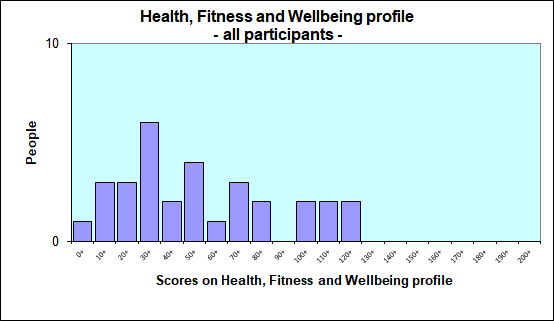|
|
|
|||||||||||||||||||||||||||||||||||||||||||||||||||||||||||||||||||||||||||||||||||||||||||||||||||||||||||||||||||||||||||||||||||||||||||||||||||||||||||||||||||||||||||||||||||||||||||||||||||||||||||||||||||||||||||||||||||||||||||||||||||||||||||||||||||||||||||||||||||||||||||||||||||||||||||||||||||||||||||||||||||||||||||||||||||||||||||||||||||||||||||||||||||||||||||||||||||||||||||||||||||||||||||||||||||||||||||||||||||||||||||||||||||||||||||||||||||||||||||||||||||||||||||||||||||||||||||||||||||||||||||||||||||||||||||||||||||||||||||||||||||||||||||
|
Health Fitness and Wellbeing Seminar Results |
||||||||||||||||||||||||||||||||||||||||||||||||||||||||||||||||||||||||||||||||||||||||||||||||||||||||||||||||||||||||||||||||||||||||||||||||||||||||||||||||||||||||||||||||||||||||||||||||||||||||||||||||||||||||||||||||||||||||||||||||||||||||||||||||||||||||||||||||||||||||||||||||||||||||||||||||||||||||||||||||||||||||||||||||||||||||||||||||||||||||||||||||||||||||||||||||||||||||||||||||||||||||||||||||||||||||||||||||||||||||||||||||||||||||||||||||||||||||||||||||||||||||||||||||||||||||||||||||||||||||||||||||||||||||||||||||||||||||||||||||||||||||||||
|
48. 2021 - August_2022
John Miller conducted a series of corporate health seminars for the organisation in August 2022.
31 participants (17 men and 14 women) completed the Health, Fitness and Wellbeing profile and a range of assessments including - Joint and muscle condition - musculoskeletal risk - diet - chemical intake - stress - career satisfaction.
Results of these assessments have been provided to management in a series of spreadsheets.
Health Climate Survey The Health Climate Survey provides people with a very good idea of how well the various systems of the body are functioning, particularly the
- the mind - autonomic nervous system - immune system - digestive system - circulatory system - elimination system - musculo-skeletal system.
It provides organisations with a good snap shot of the health of its staff.
On this profile a good score is a low score.
The score of a normal, fit and healthy human being is less than 20. Higher scores are symptomatic of dysfunction (usually personally generated) of one or more body systems. People with low levels of fitness and high levels of stress usually score well over 100.
For people with a score of more than 60, the ‘background noise’ of their life is becoming louder and louder. It is hard to concentrate on your work when body systems are dysfunctional. We know a fit and healthy group when we see the majority of scores below 40. This was not the case with this group.
By and large higher scores are usually a reflection of
• low levels of fitness
• an inability to deal with what life and work are serving up to people.
Remember, it is not what happens, but how we deal with what happens that determines our level of stress.
This profile is described as good c ompared with groups we have surveyed. The average score was 57. Anyone scoring more than 80 is putting up with a lot of 'background noise'.
Health Climate Survey Analysis Based on scores received in the Health Climate Survey we've ranked the scores and highlighted those items that recorded 20% and over.
Classification of average scores: Excellent - less than 40. Good - 41 - 50. Reasonable 51-60. Poor - over 60.
In this day and age it is usually the case that the percentage of people smoking is around 10% or less. 32% is too high and suggests a quit campaign would be useful. Smoking not only is an unhealthy habit but at $40 a day it puts a big drain on the house-keeping account.
On the Health Climate Survey the score for 'under appreciation at work' is the lowest we've ever seen. Management needs a pat on the head, a bag of lollies and a koala stamp. This is really something that needs to be celebrated and acknowledged both inside and outside the organisation.
Measure risk and Manage Risk There is an epidemic of personally-generated musculo-skeletal dysfunction in our workplaces.
Most organisations neither measure the risk nor manage it.
Their workers compensation insurer doesn't measure the risk either. They don't rate premiums against individual risk.
We recommend the Organisation take seriously and monitor carefully the incidence of personally-generated musculo-skeletal dysfunction and put in place an organisation-wide strategy to improve strength, flexibility and mobility. By far and away a high proportion of people do not have a strength and flexibility program. As a result they are getting weaker and tighter by the week, thereby exposing themselves and the organisation to risk.
When push comes to shove and people become dysfunctional, it will be the Organisation that ends up paying the high cost of an avoidable musculo-skeletal complaint. In our opinion musculo-skeletal dysfunction caused by lack of a regular and systematic strength and flexibility program cannot be classified as an injury.
Responsibility for musculo-skeletal dysfunction needs to be sheeted home to individual employees, though it’s unlikely to happen without the establishment of a culture within the Organisation that supports, values and understands the importance of staff keeping themselves strong and flexible.
We recommend a range of strength and flexibility classes that are readily available Australia-wide:
The Organisation would place itself in the forefront of OH&S practice if it took the musculo-skeletal risk seriously and moved heaven and earth to educate all staff about this risk and obligated them to take part in a regular strength and flexibility program.
Maybe The Organisation and its worker's compensation insurer could invest in a pilot program to increase staff strength and flexibility! The lack of strength and flexibility training coupled with poor abdominal strength, upper body strength, flexibility and shoulder function is a cause for concern and needs the attention of individual staff and managers.
Prehab and rehab classes
We strongly recommend that the people who are in current poor musculo-skeletal condition and who lack abdominal strength, upper body strength, flexibility, shoulder function and functional mobility, in particular those who - who failed to attain the bronze award - be obligated to attend regular, in-house strength and flexibility classes. The pressure on the organisation's workers' compensation costs is such that to do otherwise would, in our opinion be to abrogate a responsibility for the prudent management of the organisation's finances.
Stress and career management
There are some people who we would encourage to go to the Employee Assistance Program, to get some guidance and direction in managing the personal lives, their stress and their careers.
Miller Health 7 Salvado Place Stirling ACT 2611 (02) 6288 7703
|
||||||||||||||||||||||||||||||||||||||||||||||||||||||||||||||||||||||||||||||||||||||||||||||||||||||||||||||||||||||||||||||||||||||||||||||||||||||||||||||||||||||||||||||||||||||||||||||||||||||||||||||||||||||||||||||||||||||||||||||||||||||||||||||||||||||||||||||||||||||||||||||||||||||||||||||||||||||||||||||||||||||||||||||||||||||||||||||||||||||||||||||||||||||||||||||||||||||||||||||||||||||||||||||||||||||||||||||||||||||||||||||||||||||||||||||||||||||||||||||||||||||||||||||||||||||||||||||||||||||||||||||||||||||||||||||||||||||||||||||||||||||||||||
